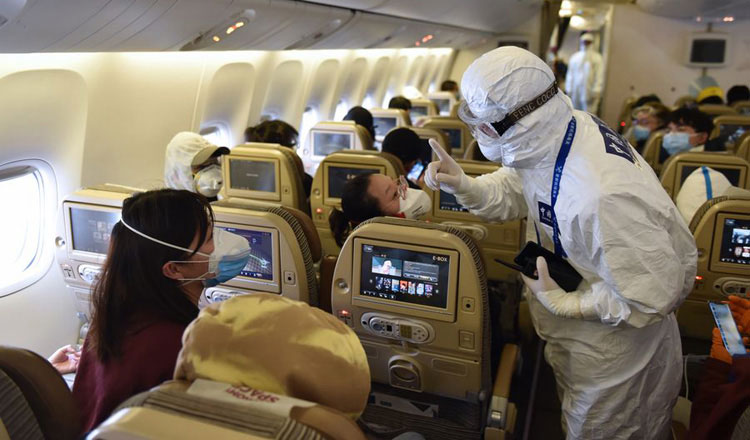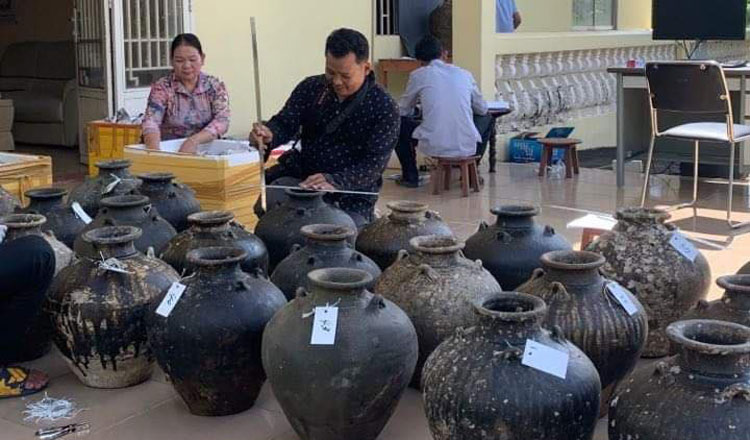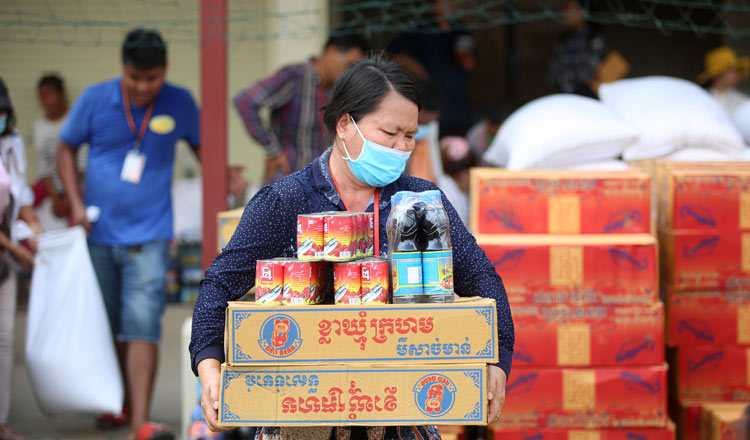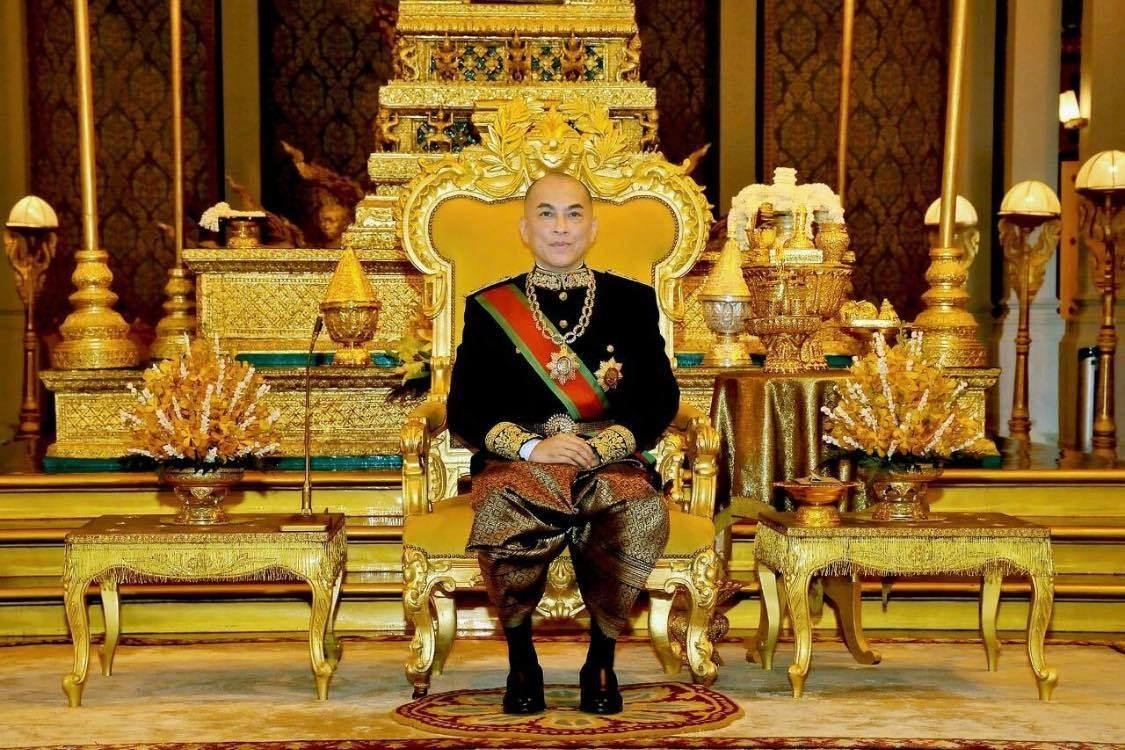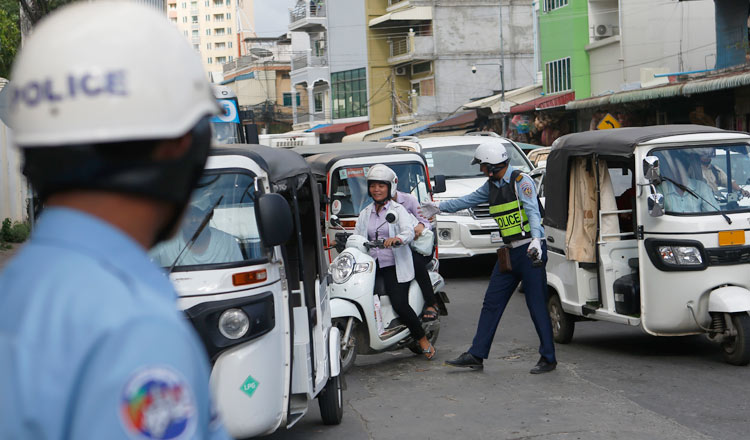Coronavirus latest global developments, China to resume flights to Cambodia from today, September 3
As a result of the COVID-19 pandemic, many countries and regions have imposed quarantines, entry bans, or other restrictions for citizens of or recent travelers to the most affected areas. Other countries and regions have imposed global restrictions that apply to all foreign countries and territories, or prevent their own citizens from travelling overseas.
China to resume direct flights. Starting today, China will resume direct international flights to Beijing from eight countries with low rates of the coronavirus, after a freeze of more than five months.
The new rules will apply to flights from Cambodia, Thailand, Pakistan, Greece, Denmark, Austria, Sweden and Canada, but travellers will be subject to centralised quarantine on arrival for 14 days and have to take two Covid-19 tests.
The pandemic has killed 857,824 people worldwide since surfacing in China late last year, according to an AFP count at 1100 GMT (6pm in Thailand) Wednesday, based on official sources.
More than 25.8 million cases have been registered.
The United States has recorded the highest number of deaths with 184,689, followed by Brazil with 122,596, India with 66,333, Mexico 65,241 and Britain 41,504 fatalities.
Maldives tightens entry requirements –
Exclusive tourist hotspot the Maldives tightens entry requirements after a spike in coronavirus infections at more than a dozen resorts.
The Indian Ocean archipelago re-opened its luxury resort islets in mid-July after a months-long lockdown, but since then 29 local staff and 16 foreigners have tested positive at the resorts, officials say.
Malaysia on Wednesday announced that long-term pass holders from India, Indonesia and the Philippines will not be allowed into the country due to a spike in COVID-19 cases in those countries.
Cambodia has suspended flights from Malaysia and Indonesia to Cambodia as of August 1 while flights from Philippines was suspended on August 13.
Countries have reopened borders and relaxed local restrictions
Cambodia: Travelers who are eligible to enter must provide a negative COVID-19 test result that is no older than 72 hours, and prove that they have medical insurance with minimum coverage of $50,000. Foreign travelers are required to deposit $2,000 for COVID-19 service charges at the airport upon entry. Once deductions for services have been made, the remainder of the deposit will be returned. Anyone who tests positive upon arrival will be quarantined for 14 days at designated facilities. Travelers who test negative must self-isolate at their own accommodation.
Japan: Borders are partially open. Foreign nationals arriving from a country where an entry ban does not apply (restrictions are listed here) are subject to a COVID-19 PCR test upon arrival, and self-isolation for 14 days at a location designated by the quarantine station chief.
Singapore: Anyone permitted to enter Singapore will be issued with a 14-day Stay at Home Notice, which will be served at a government designated hotel or at your place of residence in Singapore. Check the latest information to see which measures apply to you. The 14 day period cannot be reduced, even if you wish to leave Singapore. Transit via Changi Airport is permitted, and includes health screening measures.
South Korea: Anyone who arrives in South Korea will undergo quarantine for 14 days. Some travelers may be tested for COVID-19 within 3 days of arrival depending on the country of origin, others will be tested within 14 days. If you are not a resident in South Korea, you will be quarantined in government-arranged facilities and charged a fee. Check visa requirements.
Thailand: Most foreign nationals are not allowed to enter, except for a limited number of foreign visitors from specific categories, including 11 groups of Thai and non-Thai nationals outlined here by the Civil Aviation Authority. For the latest information on what to expect upon arrival and pre-departure requirements, read our Thailand travel alert.
Closed borders in North America
Canada: Most foreign nationals are banned from entering Canada. Exemptions include Canadian citizens, permanent residents, or their immediate families, temporary foreign workers, and some international students. If you’re a foreign national (not a Canadian citizen or a permanent resident of Canada), you won’t be able to enter if you have COVID-19 symptoms. Arrivals must provide contact information, undergo screening by a border official, and quarantine or self-isolate for 14 days. The United States – Canada border remains closed to non-essential travel until 21 September.
United States: There are restrictions on who can enter or transit the USA. Anyone permitted to enter will be screened upon arrival, and asked to self-quarantine for 14 days. The borders are closed with Canada and Mexico to all non-essential travel until 21 September.
Closed borders in Asian(selective data)
China: There are restrictions on who can enter China. Check your government travel advisory for the latest information.
Hong Kong: For the latest information on who can enter Hong Kong, read Hong Kong’s inbound traveler FAQs.
India: International flights are suspended until 30 September. The Indian Bureau of Immigration website outlines categories of foreign nationals who are now eligible to travel to India. Anyone exempt from the entry ban is subject to medical screening and quarantine for 14 days upon arrival. Everyone must provide contact details, and will be asked to download the Arogya Setu app.
Indonesia: Foreign nationals are banned from entering Indonesia. If you meet the criteria for entry, you must present a negative COVID-19 PCR test result that is no older than 7 days. If you do not have a negative COVID-19 certificate, you will undergo a swab test and quarantine at your expense until the results are received (this could take up to 7 days). You will also need to provide a personal statement that confirms you are ready to be quarantined for 14 days if required.
Laos: International flights are suspended, and borders are closed to most foreign travelers. Foreign nationals who are granted permission to enter must apply for a visa. Arrivals will undergo mandatory health screenings and 14 days of quarantine at their own expense. Passengers must have a medical certificate with a negative COVID-19 test result issued no more than 72 hours before departure, and complete a health declaration form.
Malaysia: Foreign nationals are not allowed to enter Malaysia until 31 December, and there are limited exceptions to the entry ban. Entry is prohibited except for Malaysian nationals and foreign nationals holding certain categories of residency and employment passes. Anyone who believes they qualify to return must apply here. Arrivals are subject to medical screening, quarantine for 14 days at your own cost in a designated facility, and must download the MySejahtera app.
Myanmar: All international flights are suspended until 30 September. Read the latest updates on the Ministry of Hotels and Tourism.
Philippines: Filipino nationals, spouses or children of nationals, and residents returning from abroad may be subject to quarantine for a maximum of 14 days upon arrival or required to undergo COVID-19 testing. Foreign nationals with existing long-term visas are allowed to enter the Philippines, subject to certain conditions outlined here in this travel alert.
Vietnam: Foreign nationals are not allowed to enter and visas are suspended. For the latest information, read the Vietnam tourism travel advisory. Only Vietnamese nationals, foreigners on diplomatic or official business, and highly skilled workers allowed to enter, and inbound travelers must submit an online health declaration form, and undergo medical checks upon arrival. Quarantine lasts a minimum of 14 days, and maybe extended longer if you test positive at any point.
Closed borders in Oceania
Australia: Foreign travelers are not allowed to enter Australia, unless they are Australian citizens or permanent residents and immediate family returning from abroad. The international borders remain closed until further notice. Australia will quarantine all returning residents in hotels for two weeks. Individual states have their own restrictions in place for domestic travel. The Healthdirect Australia Restriction Checker is where you can find the most up to date information by state.
New Zealand: All travelers, except for returning New Zealanders, are denied entry. Exemptions to the entry ban are listed in full by New Zealand Immigration, and this includes their partners, legal guardians or any dependent children traveling with them. All arrivals will be tested for COVID-19, and are subject to 14 days of government-supervised quarantine or self-isolation. Before entering the community, everyone must test negative for COVID-19. Worldnomads/iatatravel centre
Credited: Khmer Times

